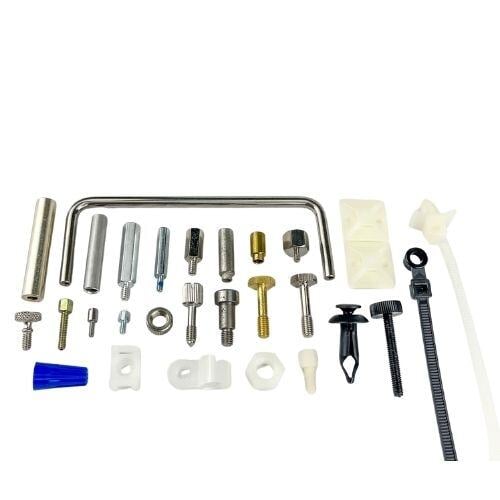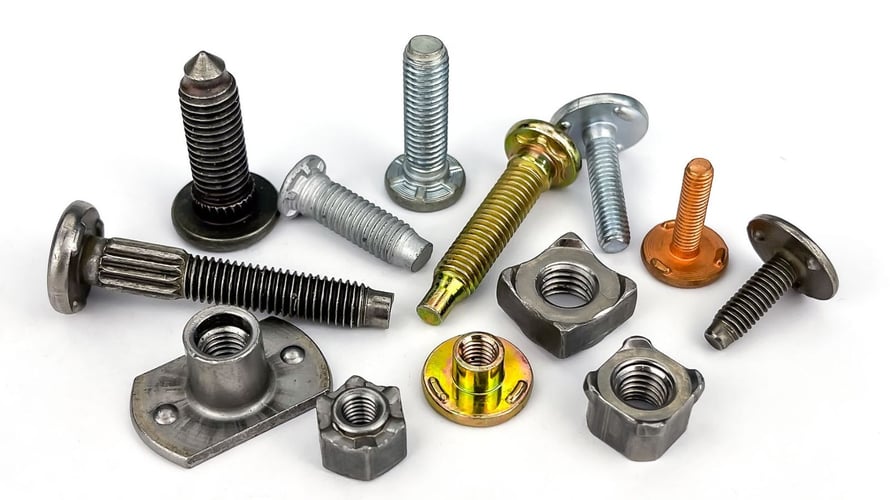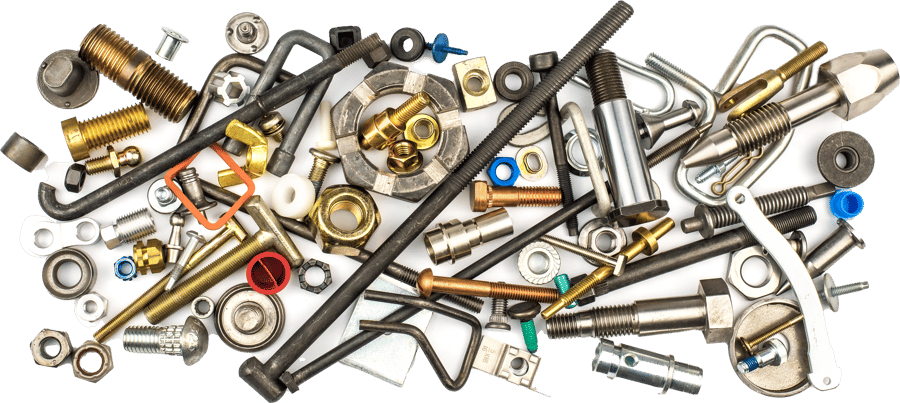The Complete Guide to Specialty Fasteners: Types and Applications
What Are Specialty Fasteners?
Specialty fasteners are custom-engineered components designed for unique applications and specifications where standard fasteners wouldn’t provide sufficient reliability, precision, or durability.
These fasteners are often found in demanding sectors such as aerospace, medical, electronics, and construction, where safety and performance are paramount.
Specialty fasteners include a wide range: nuts, pins, bolts, stampings, shoulder screws, hex cap screws, and more, each tailored to specific mechanical, environmental, or design requirements.

Types of Specialty Fasteners
The world of specialty fasteners encompasses everything from shear pins (designed to safely break under overload conditions) and torsion springs (for torque-driven applications) to Bevel washers (for high-temperature, high-pressure environments).
Material, head style, technical specifications, and tolerance class further classify specialty bolts and nuts.
High-Temperature and Corrosion-Resistant Fasteners
In extreme environments, such as engines and marine equipment, high-temperature fasteners and corrosion-resistant materials, such as stainless steel, titanium, or brass, are critical. These specialty fasteners maintain integrity under stress and exposure, making them vital for outdoor, marine, or chemical applications.
Security, Structural, and Vibration-Resistant Fasteners
When projects demand tamper resistance, security fasteners with unique drives are indispensable. Structural fasteners (anchor bolts, carriage bolts, etc.) are used in construction and infrastructure, designed with high tensile strength for safety and load-bearing.
Vibration-resistant fasteners, like nylon-insert nuts, prevent loosening over time, ensuring stability in machinery and dynamic loads.
Specialty Fastener Materials and Grades
The choice of material—ranging from metals such as stainless steel and titanium alloys to advanced composites—affects performance factors such as strength, corrosion resistance, and compatibility. Each application may require a specific grade or standard, and precise machining ensures proper fit and reliability in high-tolerance environments.
Resource:
Navigating Tight Tolerances with Specialty Bolts

Industrial Applications for Specialty Fasteners
Specialty fasteners have countless uses across industries:
-
Aerospace relies on lightweight, high-strength fasteners manufactured with cold heading techniques for precise, durable connections in aircraft.
-
Medical devices demand miniature, biocompatible fasteners with exacting tolerances.
-
Electronics and telecommunications use non-magnetic specialty fasteners for secure, precise assembly.
-
Construction utilizes anchor and structural bolts to guarantee safety and resilience under load.
Resources:
Cold Heading Techniques and Their Applications in Specialty Fasteners
Everything You Need To Know About Specialty Fasteners

Benefits of Specialty Fasteners
Key benefits are superior corrosion resistance, improved mechanical strength, and reliable performance even under harsh conditions. Precision dimensions and easy installation further make specialty fasteners the choice for both critical and small-scale applications.
Selecting the Right Specialty Fastener
When choosing specialty fasteners, ensure suppliers meet quality certifications (such as ISO 9001), can fulfill print-to-part requirements, and offer comprehensive service, including kitting and packaging. Always assess production capacity, lead times, and environmental or sustainability standards for long-term supplier relationships.

Trends in Specialty Fastener Manufacturing
Innovations such as advanced coatings and cold heading manufacturing enable greater efficiency, precision, and customization in specialty fastener production. As technology evolves, new materials and processes continue to expand the capabilities and applications of these critical components.
Specialty fasteners are at the heart of engineered products, providing the secure and tailored solutions required by modern industries.
Additional Resources:
- What is a Specialty Fastener?
- Everything You Need To Know About Specialty Fasteners
- Choosing The Correct Specialty Fasteners
- Navigating Tight Tolerances with Specialty Bolts
- Cold Heading Techniques
- Selecting The Right Specialty Fastener Supplier
- Weld Fasteners 101
- Common Mistakes When Specifying Specialty Fasteners
- Pitch Diameter and Specialty Fasteners
- Understanding Pitch Diameter
- Secondary Operations on Standard Fasteners
- The Complete Guide to Wire Forms
- Selecting an ISO Certified Fastener Supplier

